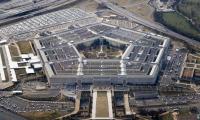ISLAMABAD: A public opinion survey done in July this year shows the highest approval rating of 88 percent for the military.
The survey, done by Gallup for a political entity that commissioned it for its own assessments, also shows people’s trust in the media and courts with 56 percent approval rating for both. However, the approval ratings for politicians, in general, are 39 percent, parliament 47 percent, Election Commission 42 percent, and police 54 percent. Media and courts have good scores with 56 percent approval rating for each.
The survey asked the question to what extent do you approve or disapprove of the job the institutions are doing. The approval rating for the Army was 88 percent, media and court 56 percent, ECP 42 percent, Local Government 51 percent, police 54 percent, parliament 47 percent and politicians in general 39 percent.
Province-wise, Punjab’s approval rating for the military is 90 percent; Sindh’s 88 percent, KP’s 91 percent and Balochistan’s 66 percent. Politicians’ approval rating is 43 percent in Punjab, 34 percent in Sindh, 29 percent in KP and 34 percent in Balochistan. “Across the provinces, almost all respondents approve of the job the Army is doing, except those from Balochistan, where 66 percent do so,” says the survey, adding, “Politicians are generally negatively rated by majority with an approval rating lower among women, those who are relatively better educated, and those living in KP.”
Among politicians, the positive approval rating of Imran Khan is the highest at 60 percent followed by Saad Rizvi and Pervaiz Elahi 38 percent each, Shah Mehmood Qureshi 37 percent, Nawaz Sharif 36 percent, Shehbaz Sharif 35 percent, Maryam Nawaz 30 percent, Shahid Khaqan Abbasi 28 percent and others.
In Punjab, the positive approval rating of Imran Khan is 58 percent, Saad Rizvi 49 percent, Pervaiz Elahi 49 percent, Shah Mehmood Qureshi 43 percent, Shehbaz Sharif 43 percent, Nawaz Sharif 41 percent, Maryam Nawaz 37 percent, Shahid Khaqan Abbasi 33 percent and others. For approval ratings of leaders, the name of Bilawal Bhutto was not included in the list. According to the survey, the PTI government received the highest positive approval rating (64 percent) for its economic performance. Among political parties, 38 percent of respondents strongly favour PTI, 16 percent strongly like PMLN, 10 percent strongly like PPP, 15 percent strongly like TLP, 9 percent strongly liked JI, 6 percent strongly like MQMP. Some 44 percent of respondents said they voted for PTI in the 2018 election, while 23 percent said they voted for PMLN, and 16 percent for PPP.
Twice as many would vote for PTI if elections happened next week than those who would vote for PMLN. Nearly 2 in 5 (37%) respondents say they would vote for PTI if Imran Khan is not the president of the party. Nearly half of PTI voters say they would still vote for PTI if Imran Khan is not the president of the party. If PTI does not stand in the election, nearly a quarter of respondents would vote for PML-N. According to the survey, 1 in 2 respondents consider themselves strong supporters of the political party that they support.
To a question if the National Assembly election were held next week, for which party would you vote, 41 percent in Punjab said PTI, 28 percent PMLN, 4 percent PPP, 6 percent TLP, etc. In the case of Sindh, 36 percent said PTI, 35 percent said PPP, 3 percent PMLN, 2 percent MQM and others. In the case of KP, 69 percent would vote for PTI, 12 percent for PMLN and 2 percent for PPP. In the case of Balochistan, PTI again topped the list with 36 percent, followed by PPP 18 percent, ANP 11 percent and PMLN 11 percent.
According to the survey, the PTI has a significant edge among young voters (first time voters), those with better education, and those using the internet. PTI is most popular in North Punjab and least in Central and West Punjab. Karachi appears to be still overwhelmingly in support of PTI. PMLN is stronger in central Punjab than other areas of the province. Lower education respondents are more inclined towards PMLN as opposed to relatively better educated.
According to the survey, 35 percent of the respondents from Sindh would vote for PPP if elections were to be held next week. Interior Sindh vote bank intact with PPP. PPP also has support in Balochistan.
If Imran Khan does not lead the PTI, nearly 2 in 5 respondents say they would still vote for PTI. If PTI does not stand in the election, 24 percent will vote for PMLN, 20 percent for PPP, 8 percent for TLP, 5 percent each for JUIF and JI, 4 percent for ANP and 4 percent for MQM.
Between political parties and a military government, the survey said, military government was always chosen by a higher proportion, including when even given the option of PTI vs military. Interestingly when given an option between Imran Khan and Nawaz Sharif, the margin is only 3 percent with Imran Khan’s 46 percent vs Nawaz’s 43 percent.
To a question about the role of the military in politics, 32 percent said the military should have a large role, 32 percent approved of some role whereas 31 percent insisted the military should have no role at all. 5 percent did not respond to this question.
Interestingly 43 percent of the PMLN voters think that the military should have a large role in the country’s politics whereas the PTI and PPP have 26 percent of their respective voters who think the same. In the PTI, 38 percent disapprove of any role of the military in politics. This percentage is 21 percent in PMLN and 28 percent in PPP.
Pakistan considered US as its most important trading partner
Moscow launched all-out invasion of Ukraine in February 2022, hoping for quick military victory over its smaller...







